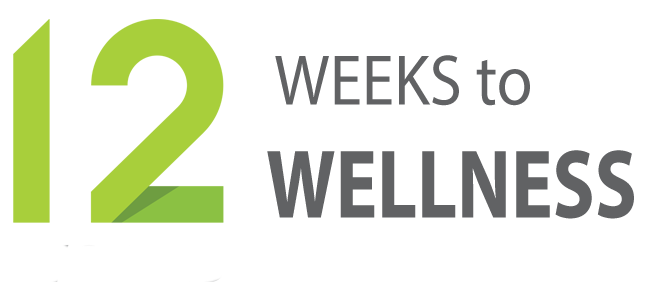
Self-compassion is a topic that often flies under the radar in the field of leadership. Yet self-compassion is arguably one of THE most important tools at our disposal to make us better leaders. I’ve personally experienced the transformative power of embracing a more self-compassionate mindset and have seen it have a similar impact for my coaching clients.
********************
I completed a recorded presentation for work a few months ago and in the initial minutes of my first rewatching all I could think was, “Wowsers, I sound and look AWFUL! My voice is so husky and pitchy, I say ‘um’ a million times, my hair is atrocious, I look so unnatural and awkward”, and on and on. As these words bounced around my mind I felt my stomach twist into knots, my heart hammer out of my chest, my cheeks burn hot, and I felt a flood of shame, embarrassment, and disappointment. It was a brutal and excoriating review – one I would never in a million years say to a friend, colleague, or anyone really. Yet here I was, a psychologist, and thus so-called expert on mental health, engaging in harsh, relentless, and entirely non-constructive self-criticism.
Perhaps you too can relate to that experience of beating yourself up for a perceived failure? Maybe you missed an error in work before submitting it; felt you didn’t bring your “A Game” to an important interview or meeting; didn’t advocate for yourself when a colleague, once again, took credit for your work…there are countless situations where we can feel we have failed to measure up to our expectations. We know it’s not helpful to engage in this type of self-talk – we feel a hundred times worse for it and it doesn’t motivate us into action – it paralyses us into inaction. So why do we do it? And how do we stop?
This is where self-compassion comes in. Leadership isn’t just about appearing competent and confident and making difficult decisions, it’s also about having the emotional strength to handle the pressures and complexities within the role. No doubt you’ve heard a lot about resilience, what you probably haven’t heard as often is that one of the most important building blocks of resilience is self-compassion.
Self-compassion is a mindset shift that helps you relate to your distress in a kinder, more productive way. Compassion is aimed at alleviating suffering – it’s the impulse to help, an active feeling of concern, and the palpable instinct to care for those who are struggling. Although most people naturally feel compassion for others, it’s harder to direct the instinct inward: we have a deeper understanding of our own motivations, flaws, and shortcomings than those of others; we hold ourselves to higher standards than others; we are often afraid of failure and have an underlying need for approval from others; we turn to self-criticism as a way to feel in control, since we can’t control what others think of us; and our early relationships with caregivers and peers who were controlling or unsupportive can shape self-critical tendencies. Luckily, in spite of these inherent barriers, self-compassion can be developed through a set of concrete, learnable skills that you can practice in the middle of daily life and that don’t require extra time in your schedule.
Let’s quickly touch on a couple of myths about self-compassion. First, that self-compassion means abdicating responsibility for your mistakes or shortcomings, thus removing your ability to properly grow. Many people feel that the only way to improve is to beat yourself up. But actually, the complete opposite is true! Self-compassion helps you take responsibility for your shortcomings and leads to constructive action. Second, that the purpose of self-compassion is to make you “feel better”. Rather, it changes the way you deal with distress so that you stop avoiding these feelings, beating yourself up for feeling this way, or judging yourself as somehow deficient. If you’re a professional caregiver, it’s a way to keep caring for others without sacrificing yourself. If you feel like you can never get on top of your workload, it’s a way to keep being productive without feeling empty.
Let’s take a moment to think about what happens to your ability to be an effective leader when you’re engaging in harsh self-criticism. Your stress levels are elevated so your brain is sending all your resources to the limbic system rather than to your pre-frontal cortex where you do your intellectual reasoning. You’re not going to be able to focus clearly on what your staff are saying as you’re too caught up in your own thoughts, your problem solving and decision making ability goes to pot, and you’re likely to have less patience and tolerance with those around you. You are also inadvertently and indirectly modeling to your staff that the appropriate response to a mistake is to self-criticize – even if they don’t know your exact self-talk script, they can certainly pick up on your emotions and behaviors and deduce what led to them.
What might it look like instead if you are practicing self-compassion? Picture yourself in a high-stakes meeting – the meeting is going pear shaped: you are struggling to find the right words to get your point across, the other participants are not buying in to your message and you feel the tension rising in the room. Instead of embarking on some stinging critical self-talk, you take a moment to breathe deeply, acknowledge your emotions, words and behaviour without self-condemnation, and employ self-talk that is kind and understanding. Instead of telling yourself, “Why can’t I find the right words? I’m totally bombing this important opportunity. What is wrong with me?”, you say, “I’m doing the best I can. I might not be saying it absolutely perfectly, but I am making myself understood. I’m only human, it’s normal and natural I might not be as articulate as I am normally in such an important moment.” Through this practice, you remain present and calm and able to move forward constructively.
Let’s look at some specific ways self-compassion helps you as a leader:
Your decision making improves.
By taking the time and effort to engage in a compassionate analysis you are more likely to be balanced with your analysis and have more clarity, thus you are more likely to make thoughtful and quality decisions.
Your ability to connect with and support your teams improves; you foster a positive and healthy workplace culture.
By having self-compassion for yourself, you naturally extend that mindset to others which enhances your empathy. This in turn leads to a more understanding, inclusive and supportive workplace culture.
Your resilience and growth mindset improves.
By monitoring your self-talk and helping reduce non-constructive harsh criticism which can hold you back from action, you move yourself forward into action. Instead of dwelling on setbacks, you have the courage and motivation to try again.
You improve your emotional intelligence.
Self-compassion leads to awareness, empathy, perceptiveness, and insight in self and for others, which are core components of emotional intelligence. When you practice self-compassion, you model emotionally intelligent leadership, thus enhancing your staff’s ability to handle their emotions, and in particular stress.
You are at less risk of burnout.
Out of all the benefits, this may be one of the most important. While there are certain workplaces particularly prone to burnout (healthcare, education, fast-paced businesses, emergency response, social justice advocacy, therapists, military), burnout can occur in any workplace. Distress gets worse when you suppress your pain and try to just stiff-upper-lip it and when you blame yourself for feeling this way. Self-compassion provides the sense of care and safety needed to feel the pain and move on from it and tells you that these experiences are natural and normal, that you’re not alone, and that you are worthy of love and kindness as you heal and recover.
********************
Practicing self-compassion will not always be a smooth ride and, as with any important skill, takes time. My own journey is very much this way – two days after the initial rewatch and after the initial burn of emotions had abated, I watched the clip again with the explicit intention of being a smidge kinder to myself. It was still hard to watch, but through compassionate eyes, I was able to identify some of the positives I’d missed the first time and provide a more balanced review.
Practicing self-compassion is a small practice that can yield big outcomes, for both yourself, and for your team. It isn’t just an abstract concept; it’s a skill you can develop and refine.
If you are interested in learning more about self-compassion in leadership, in particular about some of the challenges to self-compassion and how to overcome these, check out the LinkedIn Live interview on Jan 22 at noon.
********************
Self-compassion tool
Take out a sheet of paper or your digital device and reflect for a moment on the following questions:
- Imagine a close friend or colleague has revealed to you that they feel they have failed miserably at something/made a big mistake. Also imagine that you are in a strong and centered space. What would you say to this person? What would your posture be like? Would you make any nonverbal gestures like putting a hand on a shoulder?
- Now think about how you responded to the last time you felt you made a big mistake or failed at something. What did you say to yourself? What tone did you use? What was your posture? Did you make any nonverbal gestures like clenching your fist, putting your head in your hands?
- Do you notice any difference between how you would treat a close friend or colleague and you treat yourself? Would you be kinder to someone else? Would you tell a friend it’s not the end of the world even though you catastrophize with yourself? Would you focus on situational factors with your friend (environmental factors, other events going on) but just blame yourself and your own inadequacies for your same situation?
- Finally, see if you can respond to your feelings like you naturally would to someone you care about. Try writing some words of kindness, understanding, and support in response to your situation, using the same warm, caring tone that you would with a close friend or colleague.
*Kristen Neff and Christopher Germer. (2024). Mindful self-compassion for burnout.

Author: Dr. Brooke Lyons, PsyD, R.Psych
Dr. Brooke Lyons is a registered Industrial Organisational (I/O) Psychologist in BC Canada and New Zealand. Dr. Lyons has over 20 years’ experience providing I/O psychological support to a wide range of organisations, including private industry, government, public sector, and non-profit organisations. In addition to her primary passion for leadership assessment and development, Dr. Lyons supports organisations in the areas of executive coaching, helping to build a respectful workplace and resolve conflicts.
